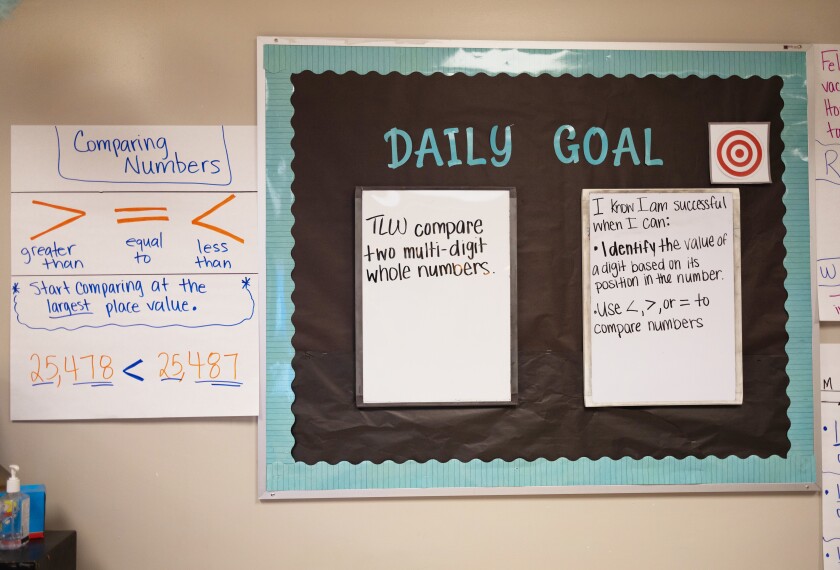Some members of Congress raised objections last week to what they see as a steadily diminishing role for the National Science Foundation in mathematics and science education, a shift that backers of the agency say curtails innovation and increases the potential for political interference in school research.
At a May 3 hearing of the House Science Committee, members of both parties said they saw recent cuts to the math and science education portion of the NSF’s budgets as a particularly troubling sign.
They also criticized the Bush administration for not specifically supporting a stronger role for the independent federal agency in the president’s $380 million math and science education initiative, unveiled earlier this year.
“I am somewhat perplexed that the majority of the newly proposed programs fall within the jurisdiction of the Department of Education, when the NSF has such a vital role to play,” Rep. Bob Inglis, R-S.C., said at the hearing.
The NSF, based in Arlington, Va., was created by Congress in 1950. It supports research in a broad range of science and engineering fields, including curriculum development, teacher training, and other efforts in K-12 education.
President Bush’s fiscal 2007 federal budget proposal calls for an expansion of Advanced Placement programs in math, science, and foreign languages, and a more aggressive federal role in promoting effective strategies for math instruction, among other steps.
Mr. Bush has also set a goal of doubling the NSF’s overall budget, now about $5.5 billion, over the next decade.
But lawmakers voiced disappointment last week over recent cuts to the NSF’s education and human resources directorate, which houses much of the agency’s math and science research. From fiscal 2004 to fiscal 2006, funding for that division fell from $939 million to $797 million. President Bush proposes $816 million for those functions in fiscal 2007, but Science Committee members said that is not enough.
Funding Innovation
Lawmakers also raised concerns about the funding for the NSF’S math- and science-partnership program, a teacher-training effort that pairs K-12 schools with colleges. Much of that funding has shifted from the NSF to the Education Department under the Bush administration.
Various bills to promote math and science education, meanwhile, including one backed by Rep. Bart Gordon of Tennessee, the ranking Democrat on the Science Committee, call for a stronger NSF role in overseeing new training and recruitment programs for math and science teachers.
The hearing was held as Secretary of Education Margaret Spellings is leading a federal panel in a far-reaching review of the effectiveness of more than 200 math- and science-related programs across numerous federal agencies, including the NSF. (“Spellings Leads Review of Math, Science Ed. Programs,” April 12, 2006)
Education Department spokesman David Thomas said the Bush administration is supporting “better, tougher math and science coursework, as well as programs to improve the quantity and quality of math and science teachers.” The review will focus “on what what’s working,” he said.
Dennis M. Bartels, the former president of TERC, an influential, Cambridge, Mass.-based research center that specializes in math and science and is supported by the NSF, told the committee that the agency’s strength is its independent research, which leads to innovations in math and science teaching and curricula. He said the Education Department, by contrast, is better suited to implementing school policy, based on what the research shows.
“NSF should stay in the teacher-enhancement business,” said Mr. Bartels, now the executive director of the Exploratorium, a science museum in San Francisco. “[That] agenda is very much unfinished.”
Judy Snyder, a math teacher in Taylors, S.C., told the committee that she benefited from an NSF-sponsored professional-development activity at a local university.
NSF “can make the long, sustained effort necessary to improve math and science education,” she said, “because it is less subject to the shifting winds of political opinion.”




